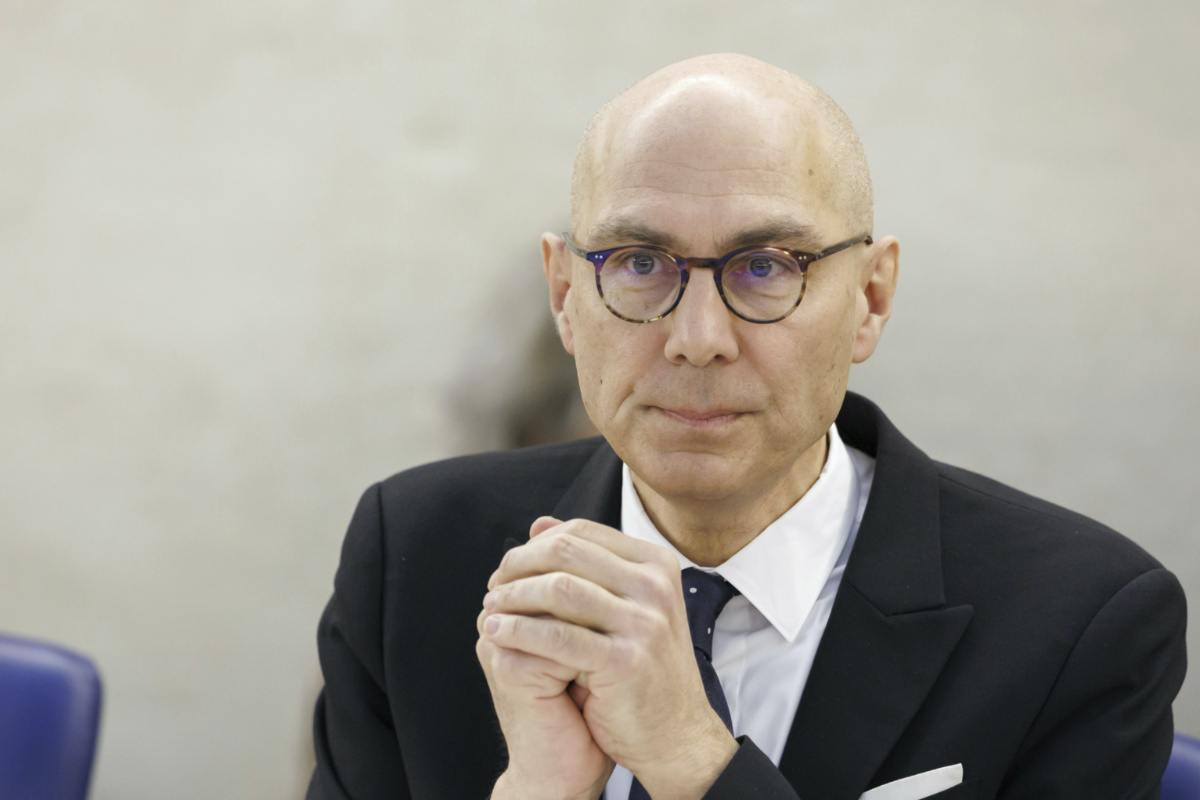Geneva, Switzerland
AP
The UN’s top human rights body overwhelmingly approved a measure calling on countries to do more to prevent religious hatred in the wake of Quran burnings in Europe, over the objections of Western countries who fear tougher steps by governments could trample freedom of expression.

UN High Commissioner for Human Rights Volker Turk speaks about the activities of his office and recent human rights developments around the globe, during the 52nd session of the Human Rights Council, at the European headquarters of the United Nations in Geneva, Switzerland, on 7th March, 2023. The UN human rights chief used a special debate on burnings of the Quran in Sweden and other European countries to tread the fine line between freedom of expression and respect for religious belief. PICTURE: Salvatore Di Nolfi/Keystone via AP File photo.
Applause broke out in the cavernous chamber of the Human Rights Council on Wednesday after the 28 to 12 vote, with seven abstentions, on a measure brought by Pakistan and Palestine that was backed by many developing countries in Africa, as well as China and India, and Middle Eastern countries.
The resolution comes in the wake of recent Quran burnings in parts of Europe, and among other things, calls on countries to take steps to “prevent and prosecute acts and advocacy of religious hatred that constitute incitement to discrimination, hostility or violence.”
After the vote, Ambassador Khalil Hashmi of Pakistan insisted the measure “does not seek to curtail the right to free speech,” but tries to strike a “prudent balance” between it and “special duties and responsibilities”.
“The opposition of a few in the room has emanated from their unwillingness to condemn the public desecration of the Holy Quran or any other religious book,” Hashmi said. “They lack political, legal and moral courage to condemn this act, and it was the minimum that the council could have expected from them.”
A day earlier, however, Michele Taylor, the US ambassador to the council, said that the United States “strongly condemns the acts that have precipitated today’s discussion, including desecration of the Holy Quran on June 28” – a reference to an incident in Sweden last month that fanned protest in some Muslim communities.
After the vote, Taylor said she was “truly heartbroken” that the council was unable to reach consensus “in condemning what we all agree are deplorable acts of anti-Muslim hatred, while also respecting freedom of expression.”






